- All
- Data & Analytic
- DJPK
- GEDSI
- Gender Responsive Budgeting
- MSS
- PFM
- Public Financial
- SKALA
- Standard
- Top 10
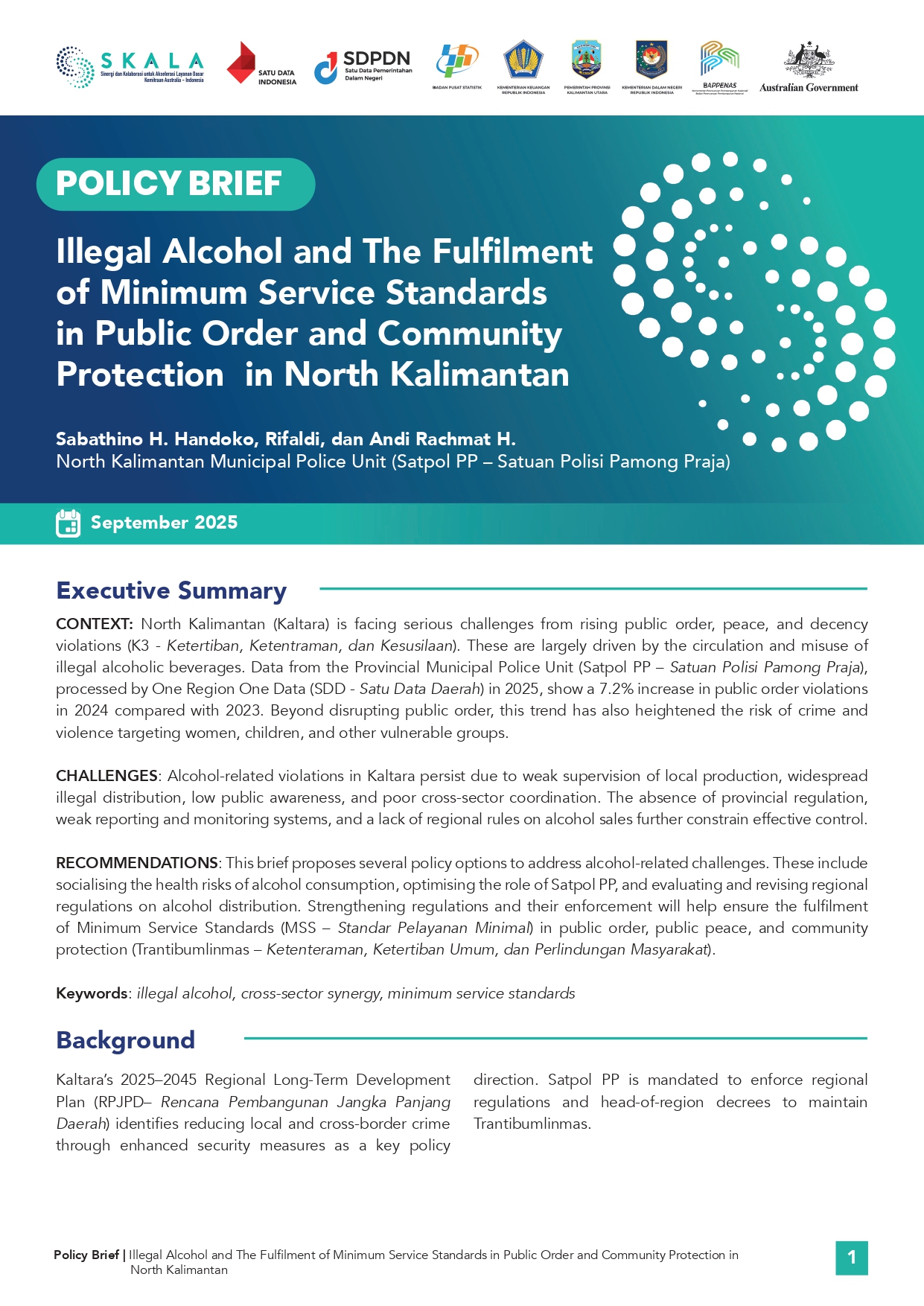
North Kalimantan is facing serious challenges related to an increase in occupational safety and health violations triggered by the distribution and abuse of illegal alcoholic beverages. Data from the Public Order Agency processed by Satu Data Daerah Kalimantan Utara in 2025 shows a 7.2% increase in occupational safety and health violations in 2024 compared to 2023. In addition to disrupting public order, this situation also increases the risk of criminal acts/violence against women, children, and other vulnerable groups. This policy brief discusses several issues, including: the lack of supervision of the distribution of illegal alcoholic beverages and the low level...
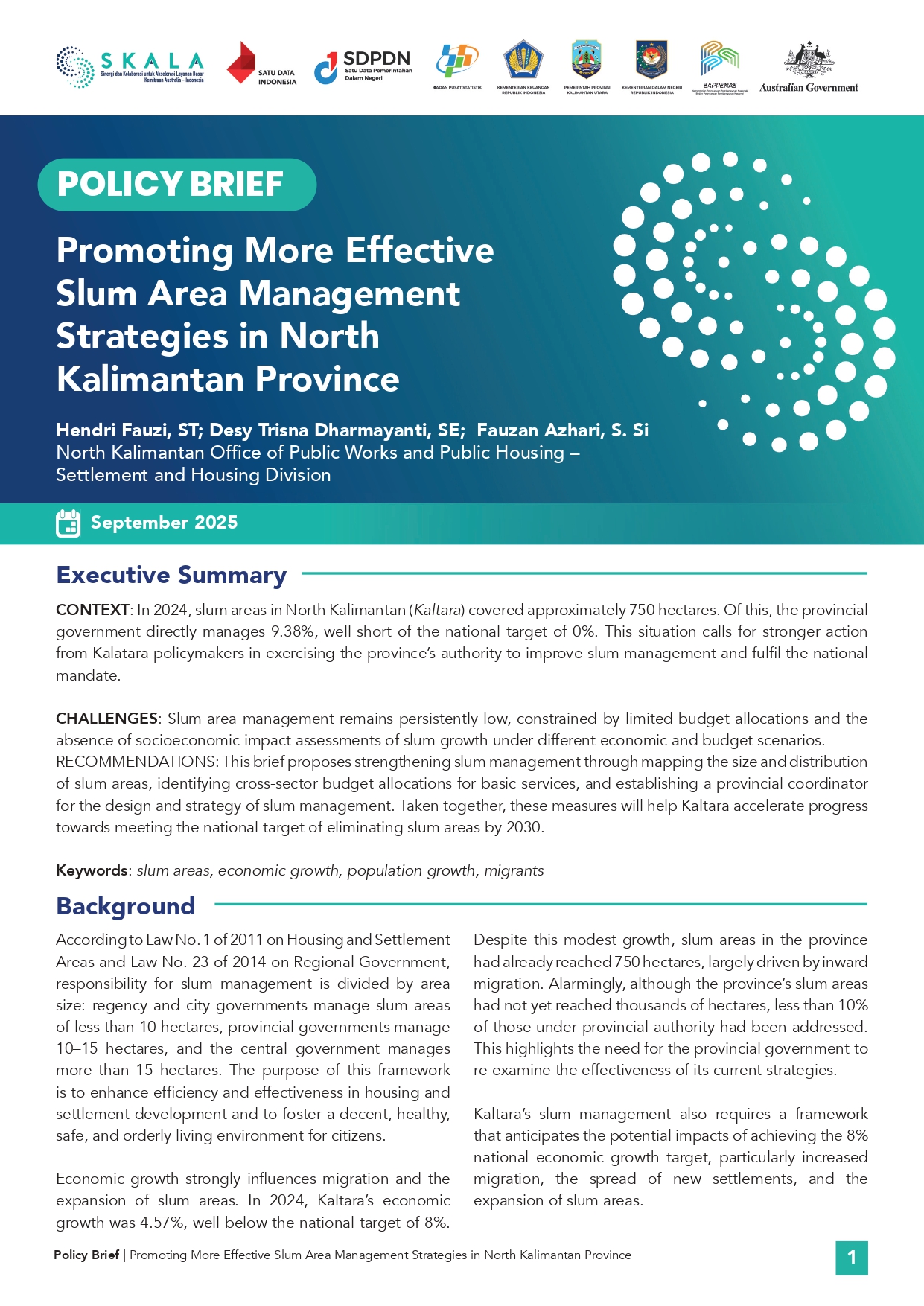
Until 2024, North Kalimantan still has slum areas with a total area of approximately 750 hectares. The area of slums managed by the provincial government accounts for 9.38% of the total area, which is still far from the national target of 0%. This condition requires attention from policymakers in North Kalimantan to manage slum areas more effectively so that they can achieve the targets mandated by the central government, in accordance with the scope of authority of the North Kalimantan Provincial Government. This policy brief discusses several issues, including: the low level of slum area management and the lack of...
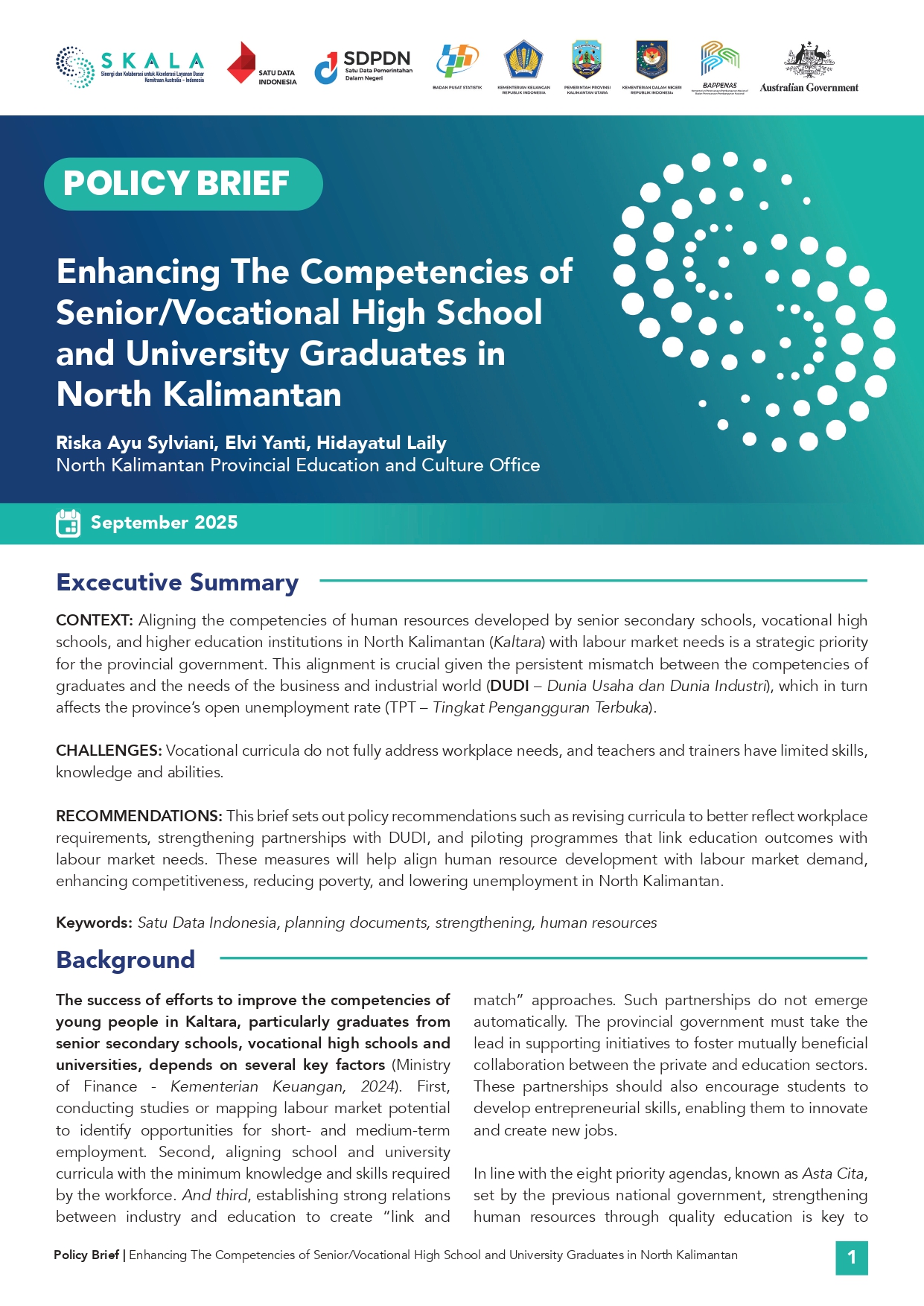
The alignment between the competencies of human resources developed through high schools, vocational schools, and universities in North Kalimantan, and the competencies required by the labor market, is a strategic and urgent matter that requires immediate intervention by the local government. This intervention is important because of the disparity between the competencies of high school, vocational school, and university graduates and the needs of the industrial and educational sectors, which ultimately has an impact on the open unemployment rate in North Kalimantan. This policy brief discusses several issues, including the vocational school curriculum, which is considered to be not fully...
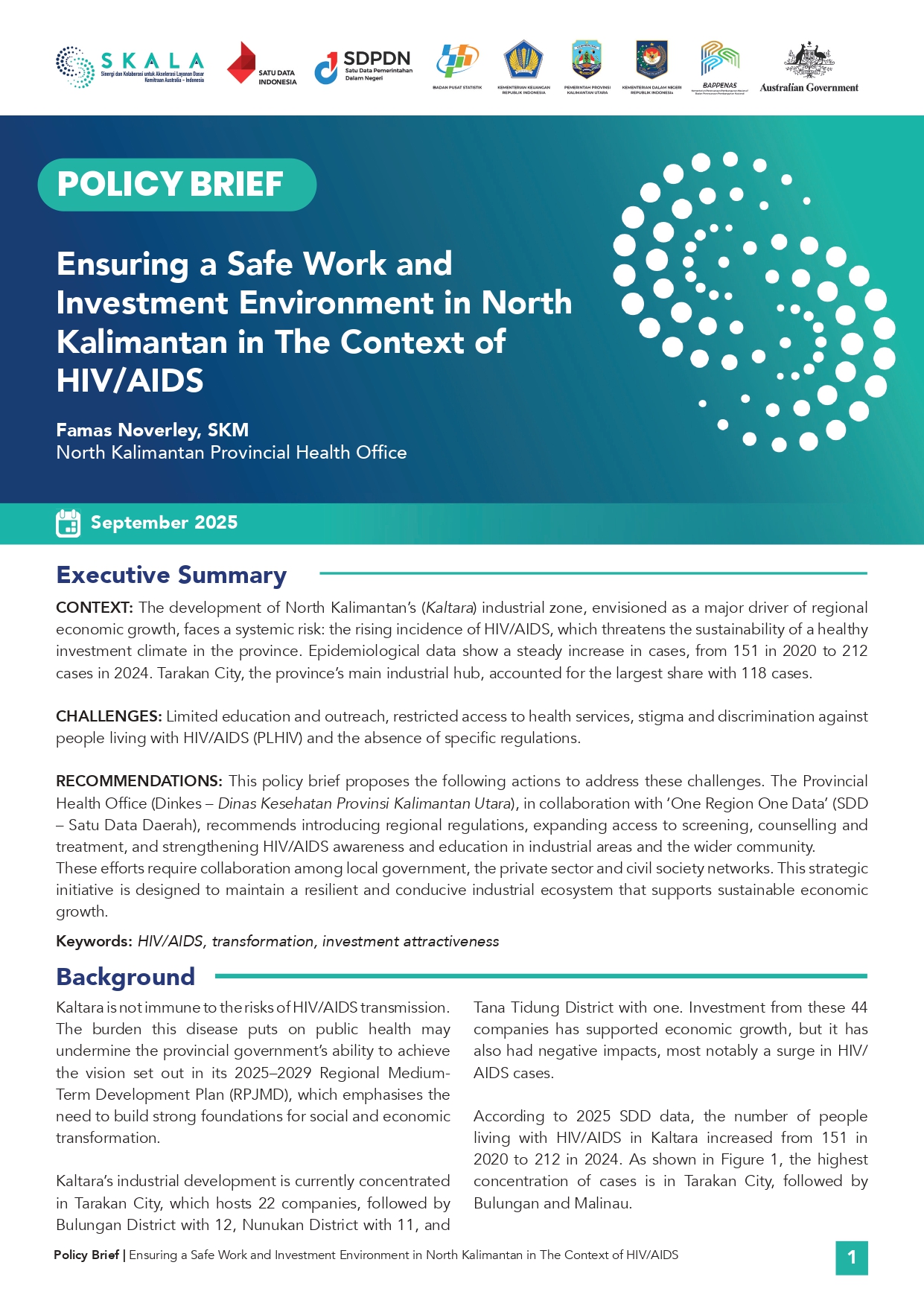
The development of the North Kalimantan industrial area as a driver of the regional economy is facing systemic risks in the form of an escalation of HIV/AIDS cases, which threatens the sustainability of a healthy investment environment in the province. Epidemiological data shows an increase in prevalence from 151 cases (2020) to 212 cases (2024), with the main cluster concentrated in the city of Tarakan as the main industrial hub (118 cases). This policy brief also discusses several issues, including: lack of education and socialization, limited access to health services, and the absence of specific regulations. To that end, the...
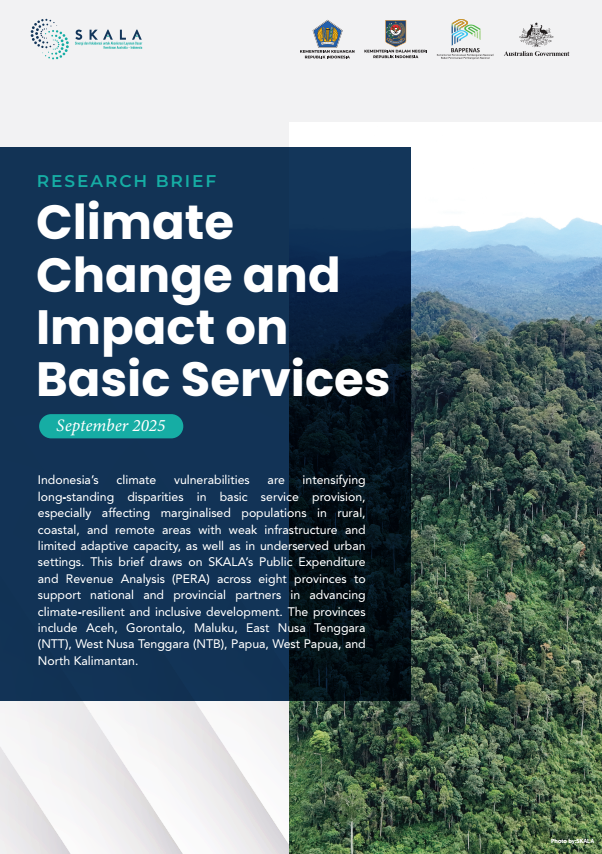
Climate change is worsening inequalities in basic service delivery across Indonesia, particularly in rural, coastal, and remote areas with limited infrastructure. SKALA’s Public Expenditure and Revenue Analysis (PERA) in eight provinces (Aceh, Gorontalo, Maluku, East Nusa Tenggara, West Nusa Tenggara, Papua, West Papua, and North Kalimantan) reveals how rising temperatures, floods, droughts, and coastal erosion strain access to clean water, sanitation, healthcare, education, and food systems. The research underscores the vital role of local governments in planning services and driving green economic transitions, while recommending three strategic priorities: investing in climate-resilient basic services for underserved communities, supporting local sustainable economic...






